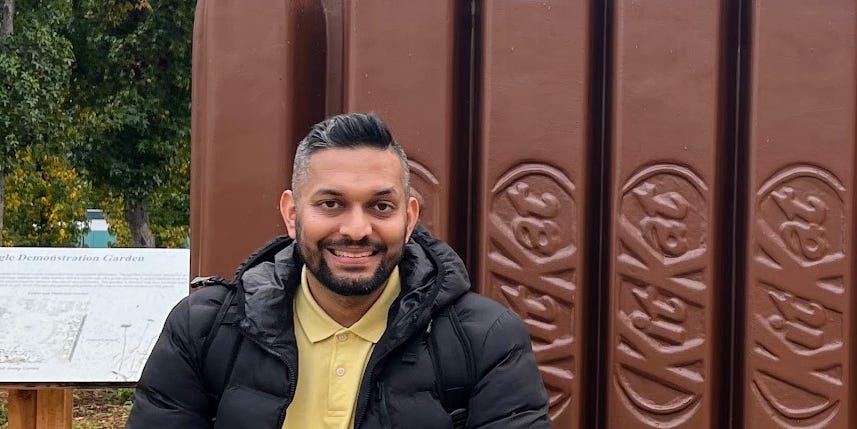- Sahil Gaba, a software engineer, landed a job at Google after two prior rejections.
- Gaba felt less stressed the third time because he had more interview and coding experience.
- He also felt that having a good current job helped take away some of the pressure of his interview.
Thanks for signing up!
Access your favorite topics in a personalized feed while you’re on the go.
download the app

Sahil Gaba was four years out of graduate school and working as a software engineer at Amazon when a recruiter contacted him to interview at Google.
Gaba had interviewed at Google twice before, in 2016 and 2018 respectively. Neither round of interviews turned into an offer.
“I had been struggling to get a job for a long time at that point and had faced hundreds of rejections by then,” Gaba told Business Insider about his two interview experiences. “It was just another rejection for me.”
This time around, he wasn’t worried about the outcome of the application.
“I had kind of stopped caring about the results of the interviews because I had taken and failed so many of them,” Gaba said. “In a way, it’s quite liberating when you go in with a mindset that you’ve seen it all.”
So he decided to go for it.
After eight rounds of interviews, he got a job offer with Google in 2021 as a software engineer. Here’s what his years of interview experience taught him about big tech interviews.
Build interview experience
In the coding rounds of big tech interviews, there are two parts to solving a question — coming up with the solution, and writing the code.
“While I was new, I would be under more pressure while writing the code,” he said.
The extra years of experience took away part of the stress, he said: “Now writing the code is not the challenge — as long as I could come up with the solution, the writing part was straightforward.”
The third time he interviewed at Google, Gaba switched his programming language of choice from Java to Python in interviews — a move that’s still debated in the industry, he said.
“That sped up my coding ability in the interviews a lot because it’s very easy to think about,” he said, as compared to Java. “Even to this day, I don’t use Python at work, but let’s say if I have to interview tomorrow, I’ll be using Python.”
Interviewing in low-pressure situations
Interviewing while he had a job he was happy with took away some of the pressure of the process, Gaba said.
The second time he interviewed at Google, Gaba said he was looking for an immediate exit from his job at the time, which put a lot of pressure on him.
This time around, he liked his job, which helped him stay calm at interviews.
“I was enjoying working with my coworkers at Amazon,” he said. “I didn’t really have any problem staying back either.”
Buying negotiating power
During his third round of interviews at Google, Gaba followed a common practice in the tech industry.
He set up interviews at Meta, Google, and Uber close to each other so that offers — if he got them — would roll in around the same time.
That would give him a “slightly upper hand in negotiation,” he said.
“So that helped me be able to negotiate my salary with all the companies,” he said.
Relying less on referrals
Gaba said he used to rely heavily on referrals to apply for jobs in big tech.
When he had exhausted his network and still hadn’t landed a job, he started applying to companies directly through their job portals. When he applied to Amazon, he applied to not one, but to 10 or 15 positions on the same day, he said.
His strategy is that one recruiter has multiple openings: “Essentially you’re not applying for a job, you’re applying for a recruiter.”


